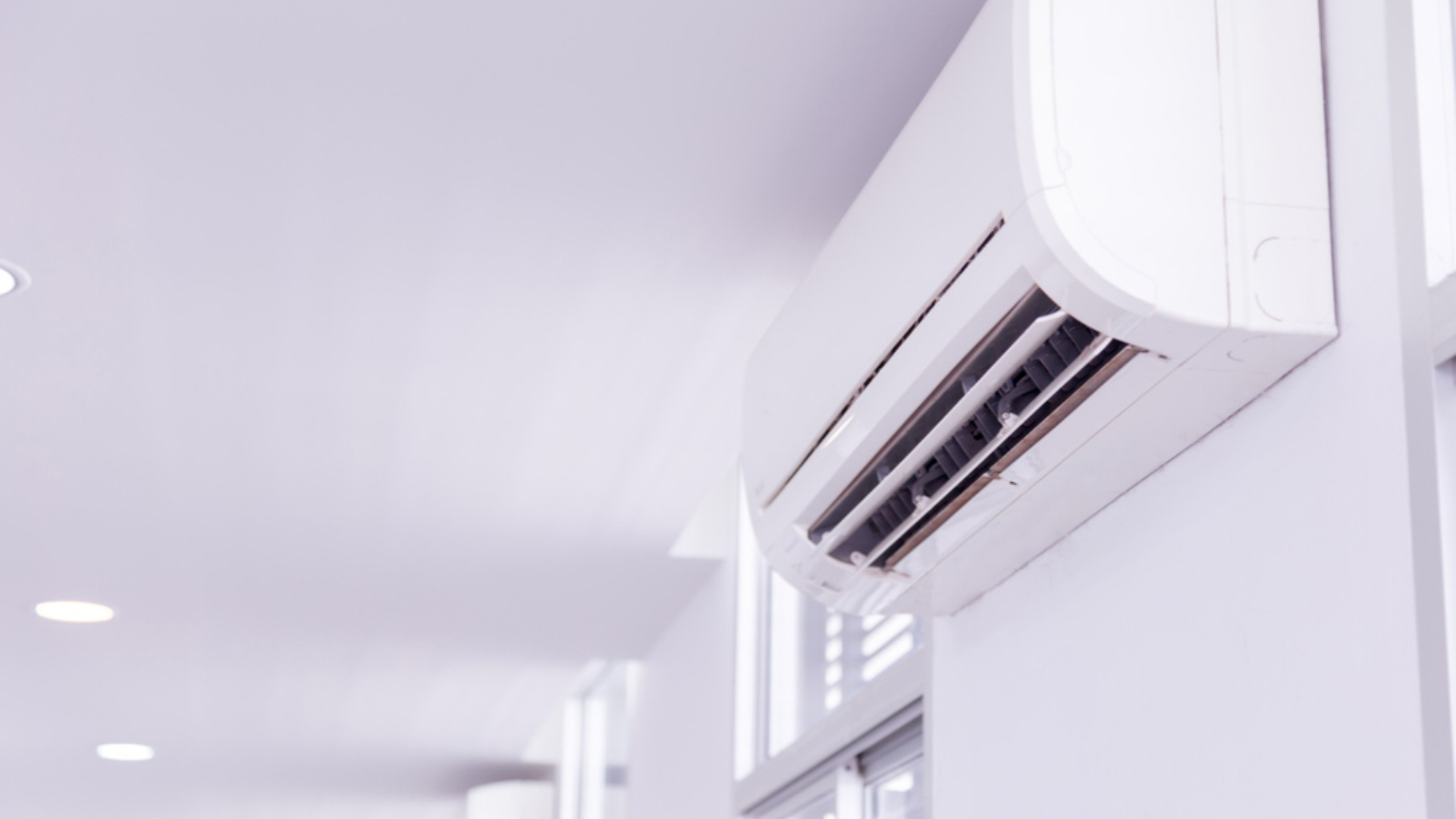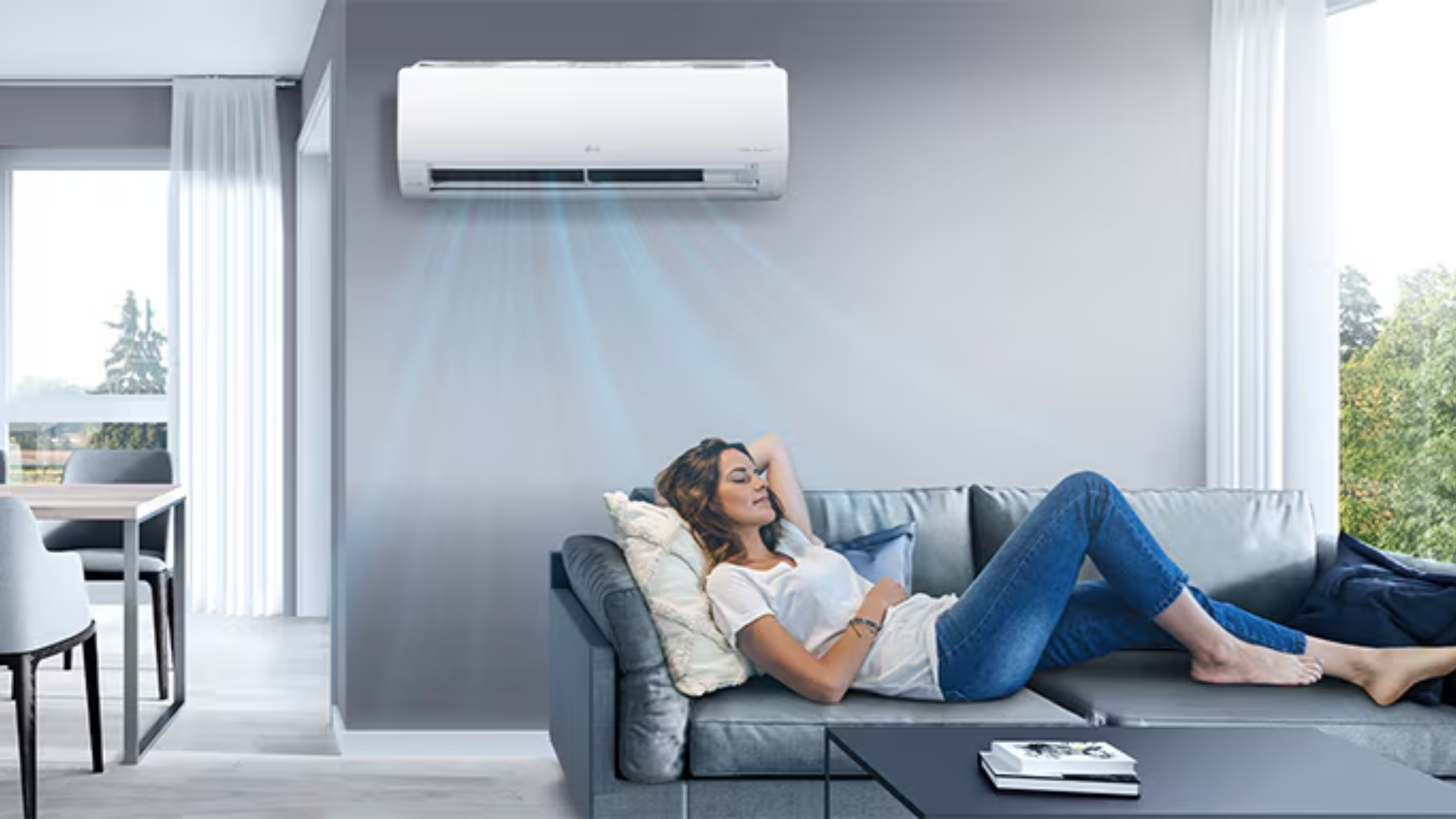If you stay in an AC for an extended period, does it affect the body or not
Published on 2024-10-15
Air conditioning has become a common part of our daily lives, especially during the hot summer months, when we often spend most of our time in climate-controlled spaces.
In public places like shopping centers and workplaces, air conditioning is essential for maintaining a comfortable environment. Often, windows cannot be opened to let in fresh air, so a well-functioning central air conditioning system is vital. A cool work environment can enhance productivity and overall comfort.
Overall, air conditioning offers numerous benefits, especially when it is well-maintained, providing good air quality. Regular maintenance is essential. Air conditioning (AC) is a common feature in many homes and workplaces, providing relief from the heat and creating a comfortable environment. However, the effects of staying in an air-conditioned space can vary significantly based on the temperature setting. Understanding how temperature influences our health is crucial for maximizing the benefits of AC while minimizing potential risks.

Understanding Temperature Settings
1. High Temperature Settings
When the AC is set to a high temperature, the room may feel warm and humid. This can lead to discomfort, making it difficult to concentrate or relax. Staying in a warm environment for sustained periods can increase the risk of heat-related issues, especially during the hotter months. This includes dehydration, fatigue, and heat exhaustion.
2. Low Temperature Settings
Conversely, if the AC is set to a very low temperature, it can create an excessively cold environment. This can lead to discomfort, causing the body to struggle to maintain its core temperature. Prolonged exposure to cold air can result in muscle stiffness, joint pain, and respiratory issues. The cold, dry air can irritate the respiratory tract, leading to sore throats or even exacerbate asthma symptoms. Individuals may also experience fatigue or lethargy as the body works harder to maintain warmth, leading to decreased productivity and energy levels.

Optimal Temperature for Comfort and Health
The ideal temperature for air conditioning typically ranges from 72°F to 78°F (22°C to 25°C). This range is generally comfortable for most people and helps to maintain a balanced indoor climate without putting unnecessary strain on the body. Setting the temperature within this range can:
1. Help regulate body temperature effectively, allowing for comfort without excessive sweating or shivering.
2. Minimize respiratory issues by avoiding overly cold or dry air, which can irritate the nasal passages and throat.
3. Promote better sleep quality, as a comfortable temperature can enhance relaxation and improve overall restfulness.
Importance of Humidity Contro
lhumidity levels play a crucial role in how air conditioning affects the body. High humidity in conjunction with high temperatures can create an uncomfortable environment, leading to excessive sweating and discomfort. It can also increase the perception of heat, making the body feel warmer than it actually is. This can lead to heat-related illnesses, particularly for vulnerable populations such as the elderly and young children.
low humidity levels can lead to dry skin, chapped lips, and dry eyes. This can be particularly problematic for individuals with existing skin conditions or respiratory issues. Low humidity can also increase the likelihood of viral infections, as dry air can irritate the respiratory tract, making it easier for viruses to enter the body.

Tips for Managing AC Temperature Effectively
Set the Right Temperature:
Keep the AC temperature between 72°F and 78°F (22°C to 25°C) to create a comfortable environment without straining your body.
Incorporate Humidifiers:
If you notice dry air while using AC, consider using a humidifier to add moisture back into the air. This can help prevent skin and respiratory issues associated with dry air.
Take Breaks Outdoors:
If you’ve been indoors for an extended period, step outside for a few minutes to allow your body to adjust to natural temperatures. This can help enhance your overall well-being and reduce fatigue.
Stay Hydrated:
Drink plenty of water throughout the day to stay hydrated, especially if you’re in a cool, air-conditioned environment.
Monitor Air Quality:
Regularly check and maintain your AC unit to ensure it's functioning efficiently. Clean or replace filters to prevent dust, allergens, and pollutants from circulating in the air.
The temperature setting of your air conditioning system plays a importance role in your overall health and comfort. While AC can provide significant relief from heat, it’s essential to find the right balance to avoid negative effects. By maintaining optimal temperature and humidity levels, you can enjoy the benefits of air conditioning while safeguarding your well-being. The impact of staying in air conditioning depends largely on the temperature setting. If we set the AC to a very high or very low temperature, it can have negative effects on our body. However, if we maintain the AC at a comfortable and appropriate temperature, it is less likely to cause any harm to our health.
यदि तपाईं अधिकतम समय एसीमा बस्नुहुन्छ भने, यसले शरीरमा असर गर्छ कि गर्दैन?
AC हाम्रो दैनिक जीवनको एक सामान्य हिस्सा बनिसकेको छ, especially during the hot summer months, जब हामी प्रायः समय climate-controlled spaces मा बिताउँछौं। यदि तपाईं २४ घण्टा एसीमा बस्नुभयो भने, यसले हाम्रो शरीरलाई असर गर्छ कि गर्दैन? यो largely निर्भर गर्छ, temperature setting मा।
सार्वजनिक स्थानहरूमा जस्तै shopping centers र workplaces मा, air conditioning is essential for maintaining a comfortable environment। त्यहाँ प्रायः झ्यालहरू खोल्न सकिँदैन, त्यसैले राम्रोसँग सञ्चालन हुने central AC system हुनु धेरै महत्वपूर्ण हुन्छ। A cool work environment can enhance productivity र आरामलाई बढावा दिन्छ।
एयर कन्डिसनको धेरै benefits छन्, especially जब यो well-maintained हुन्छ र good air quality प्रदान गर्दछ। त्यसैले, regular maintenance अत्यावश्यक हुन्छ। AC को effect धेरै हदसम्म temperature setting मा निर्भर गर्दछ। यदि हामीले एसीलाई धेरै high temperature मा सेट गर्यौं भने, कोठा तातो र humid महसुस हुन्छ, जसले discomfort create गर्न सक्छ। यसले ध्यान केन्द्रित गर्न र आराम गर्न कठिन बनाउन सक्छ। लामो समयसम्म तातो वातावरणमा रहँदा dehydration, fatigue, र heat exhaustion जस्ता समस्याहरू उत्पन्न हुन सक्छ।
Conversely, यदि AC लाई धेरै low temperature मा सेट गरिन्छ भने, यो excessively cold environment create गर्न सक्छ। यसले शरीरलाई आफ्नो core temperature maintain गर्न गाह्रो बनाउँछ र prolonged exposure ले muscle stiffness, joint pain, र respiratory issues उत्पन्न गर्न सक्छ। Cold, dry air ले respiratory tract लाई irritate गर्न सक्छ, जसले sore throat वा asthma symptoms लाई worsen गर्न सक्छ।
Optimal temperature को लागि, एसीलाई typically २२°C देखि २५°C को दायरामा सेट गर्नु राम्रो हुन्छ। यसले comfortable environment create गर्न मद्दत पुर्याउँछ बिना excessive sweating वा shivering। Humidity control पनि धेरै important हुन्छ। High humidity र high temperatures ले uncomfortable environment create गर्न सक्छ, जसले excessive sweating र discomfort ल्याउँछ। Conversely, low humidity ले dry skin, chapped lips, र dry eyes जस्ता समस्या उत्पन्न गर्न सक्छ।
एयर कन्डिसनको temperature setting ले तपाईंको स्वास्थ्य र comfort मा important भूमिका खेल्छ। AC ले तातोपनबाट relief provide गर्छ, तर सही balance कायम राख्न जरुरी छ। Optimal temperature र humidity levels राखेर, तपाईंले air conditioning को benefits enjoy गर्न सक्नुहुन्छ र आफ्नो well-being safeguard गर्न सक्नुहुन्छ। यदि हामीले एसीको तापक्रम धेरै उच्च वा धेरै कम सेट गरेर बस्यौं भने हाम्रो शरीरलाई असर गर्न सक्छ। तर, हामीले सही तापक्रममा सेट गरेर बस्यौं भने हाम्रो शरीरलाई असर गर्दैन।
























